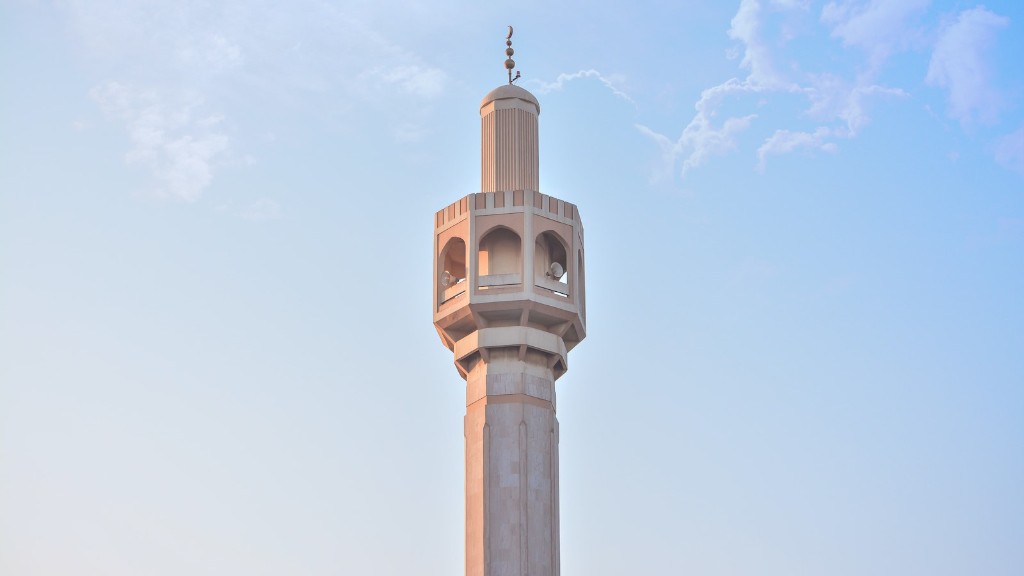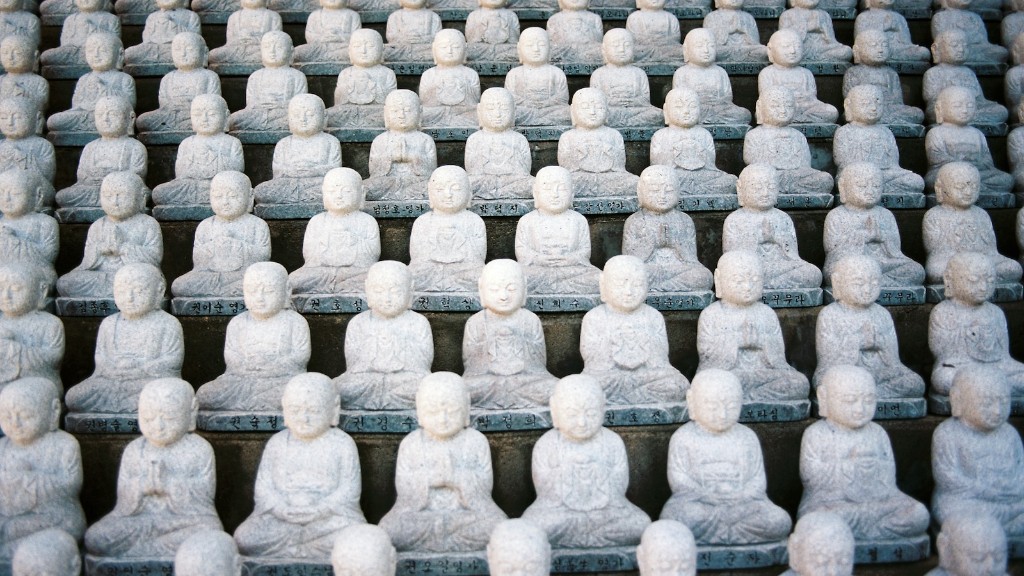The rise of Islam in the 7th century CE marked a major turning point in world history. Islamic beliefs and practices spread quickly throughout the Middle East and beyond, dramatically reshaping the cultures of the regions they reached. Within a few centuries, Islam had become a global religion, with a substantial following in Africa, Asia, and Europe. The impact of Islam on the world has been wide-ranging and profound, touching almost every aspect of human life.
The impact of Islam has been both positive and negative. On the positive side, Islam has brought a new way of thinking to the world. It has also brought new technologies and innovations to the world. On the negative side, Islam has been used to justify violence and terrorism.
What did Islam contribute to the world?
It is often said that the European Renaissance would not have happened in the way that it did if Muslim scholars had not translated classic Greek texts. This is because Muslims made major advancements in astronomy, zoology, geography, arithmetic, navigation, art, architecture, and technology. Consequently, they were able to provide Europe with a wealth of knowledge that was essential for the Renaissance.
The spread of Islam had a significant impact on trade. Unlike early Christianity, Muslims were not reluctant to engage in trade and profit; Muhammad himself was a merchant. As new areas were drawn into the orbit of Islamic civilization, the new religion provided merchants with a safe context for trade. This resulted in an increase in trade and commerce, which had a positive impact on the economy.
How does Islam contribute to society
Islam is a religion that is based on individual and collective morality and responsibility. It was first revealed in a context where social revolution was needed. The Qur’an expresses the collective morality of Islam in terms of equality, justice, fairness, brotherhood, mercy, compassion, solidarity, and freedom of choice.
The growth of Islam in the Middle East and North Africa led to the unification of many nomadic people into a more cohesive culture. This was accomplished through the creation of a common currency, making Arabic the official language, and standardizing measurements. This Golden Age during the Abbasid Dynasty was a time of great prosperity and advancement.
How did Islam become important?
Islam spread through military conquest, trade, pilgrimage, and missionaries Arab Muslim forces conquered vast territories and built imperial structures over time. Islam also became a significant force through the formation of merchant guilds and religious brotherhoods. Pilgrims flocked to Mecca and Medina, where they were exposed to new ideas and influences. And Muslim missionaries traveled to the far corners of the world to preach the message of Islam.
The Qur’an does not state that Allah created the heavens and the earth in six literal days. The word “youm” can also refer to a longer period of time, such as a era or age. This is how the word is used in other verses of the Qur’an, such as “Then he rose over (Istawā) the throne (of authority). The Most Merciful. So his dominion was completed on that Day (youm)” (Qur’an, 19:67). Therefore, it is possible that the “six days” mentioned in the Qur’an refer to six longer periods of time.
What is Islam and why is it important?
Islam is a monotheistic religion that began with the Prophet Muhammad in the 7th century. Its central idea is submitting to the will of God, and its central article of faith is that “There is no god but God and Muhammad is his messenger.” Muslims are those who follow Islam. The Quran is the holy book of Islam, and the Hadith are the sayings of the Prophet Muhammad.
The basic aim of Islamic morality and ethics is to achieve Raza-e Ilahi (the Pleasure of God) or to make God’s pleasure the objective of man’s life. The importance of moral behavior in this is reflected in the five Quranic verses calling on Muslims to enjoin what is right and forbid what is wrong.
What is Islam and its importance
Islam is a religion that calls for submission to the will of God. Muslims are those who follow the teachings of Islam and believe in the one, all-knowing God known as Allah. The goal of Muslims is to live a life that is in complete submission to Allah.
The Islamic world was at its cultural peak during the High Middle Ages, supplying information and ideas to Europe via Al-Andalus, Sicily, and the Crusader kingdoms in the Levant. These included Latin translations of the Greek Classics and of Arabic texts in astronomy, mathematics, science, and medicine.
How did Islam affect society from 1200 to 1450?
There is no question that Islam and Christianity have played significant roles in shaping the cultural landscape of the world. Islam created a new cultural world known as Dar al-Islam, which transcended political and linguistic boundaries in Asia and Africa. Christianity and the Catholic Church served as unifying forces in Europe. Both religions have had a profound impact on the arts, literature, philosophy, and sciences.
Some people believe that Islam spread so quickly because of the military successes of the early Muslim conquests. However, there were also other important factors, such as the fact that Mecca was connected to many global trade routes. Additionally, the Muslims were generally Fair towards the peoples they conquered, which likely helped to win over some converts.
What did Islam accomplish
Medicine has helped the world gained more knowledge on a wide scale, which helped sick people. There were lots of Islamic achievements such as military strength and empire building, famous islamic cities, academia, medicine, algebra, navigation, science, literature, art and architecture. Science has helped us develop new technologies and understand the world around us better. Literature has helped us understand different cultures and art has helped us appreciate the beauty of the world.
The single most important belief in Islam is Tawhid, which is the oneness and unity of God. Muslims believe that there is only one God (Allah) who is the universal God of all humanity. They believe that God is immanent, which means that He is always close by, and that He is transcendent, which means that He is beyond our understanding. Muslims also believe that God is just and merciful, and that He is the ultimate judge of all humans.
What does Islam teach us about life?
It is important to remember that the purpose of human life according to Islamic teachings is to live a good life. This means following the laws of Allah and having a good connection with Him. It is also important to have good dealings with others, so that we can attain true happiness in this world and prepare for the next life.
In order to effectively teach about Muslims and Islam, it is important to understand the history and origins of the faith. The start of Islam is marked in the year 610, following the first revelation to the prophet Muhammad at the age of 40. Muhammad and his followers spread the teachings of Islam throughout the Arabian peninsula. Islam is based on the belief in one God, Allah, and the teachings of the prophet Muhammad. Muslims follow the Five Pillars of Islam, which are the basic tenets of the faith. These pillars are faith, prayer, giving, fasting, and pilgrimage. Muslims also have a strict code of conduct, known as Sharia law. In addition to understanding the history and origins of Islam, it is also important to understand the Islamic beliefs and practices. Muslims are a diverse group, and there are many different sects within Islam. Sunni Muslims make up the largest group, followed by Shia Muslims. There are also Sufi Muslims, who follow a more mystical tradition. Muslims believe in the Quran, which is the holy book of Islam. The Quran contains the teachings of Muhammad and is the basis of Muslim law. Muslims also believe in the Hadith, which are the sayings and traditions of Muhammad. Muslims follow the Five Pillars of Islam, which are the basic tenets
Conclusion
Islam is one of the largest religions in the world, with over 1.6 billion followers worldwide. Islam has impacted the world in a number of ways, from its political and economic impact to its contribution to world culture and art. Islam has also played a significant role in the development of science and medicine, and has had a significant impact on the course of world history.
The impact of Islam has been both positive and negative. On the one hand, it has brought about a more tolerant and peaceful world. On the other hand, it has also been the cause of much violence and bloodshed. Overall, however, the impact of Islam has been mostly positive, and has helped to create a more peaceful and tolerant world.




